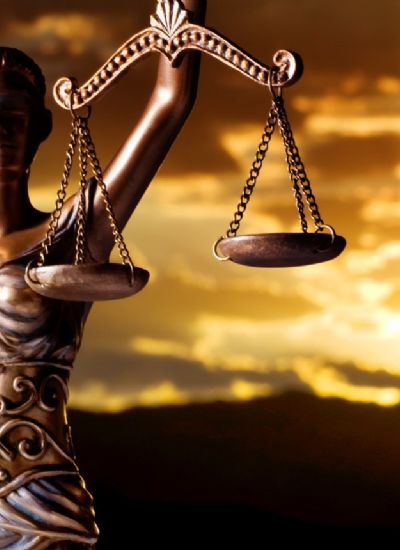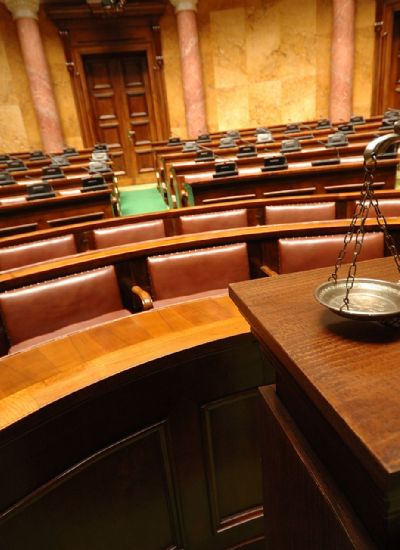The Political Campaign of 1800
The political campaign of 1800--in which Thomas Jefferson and another Republican, Aaron Burr, challenged John Adams in his bid for reelection to the presidency--would prove to be one of the most significant campaigns in American history.
Jefferson had devised a strategy long before the election.
Two years earlier, he had begun a letter-writing campaign designed to spread his thoughts around the country.
Jefferson sent letters to all of his influential Republican supporters and also to Republican newspapers.
In the letters, he explained the reasons behind the political positions he had adopted.
He explained why he believed that the powers of the individual states needed to be protected.
He also argued against what he felt was an attempt to transfer all of the powers of the states to the federal government and the powers of the federal government to the presidency.
Jefferson's letters called for smaller, more cost-effective government, one that would use any leftover tax revenue to pay off national debt.
He argued against a standing army in peacetime, expressing his belief that state militias were able to provide defense unless the country was invaded.
Finally, the letters outlined Jefferson's support for freedom of the press and freedom of religion.
The political campaign of 1800 was also noteworthy for the beginning of what eventually became known as "dirty campaigning.
" Jefferson, Burr, and Adams avoided directly criticizing each other, but their supporters were not so restrained.
The candidates' supporters began using newspapers and pamphlets to criticize the candidates' policies, records, and reputations.
Their characters were attacked through gossip and rumors.
Jefferson's supporters attacked Adams and the Federalists for deficit spending and for their unfocused foreign policy.
Federalists attacked Jefferson's character, labeling him "un-Christian.
" When the election campaign was over, John Adams failed to hold on to the presidency.
He had received only only 65 electoral votes, but Thomas Jefferson and Aaron Burr had tied--each received 73 electoral votes.
Under the terms that then existed in the Constitution, a tie was to be decided in the House of Representatives, which was still dominated by Federalists (the election had changed the balance of power, but the newly elected Republican representatives had not yet taken office).
After several days, 36 ballots, and much behind-the-scenes campaigning, Jefferson was finally chosen as the new president.
Burr became the vice president.
This was a pivotal moment in American history.
Political parties had nominated candidates.
Candidates had run campaigns on issue platforms.
Power had peacefully changed hands from one political party to another.
Future presidential campaigns would forever be influenced by these events.
Yet the election of 1800 also marked the end of an era.
Before the next presidential campaign, the Twelfth Amendment to the Constitution would go into effect, changing the presidential electoral process so that electors would cast separate ballots to elect the president and vice president.
Jefferson's Democratic-Republican Party would become the dominant political party in the United States, returning Jefferson to the presidency in 1804, as well as ensuring the election of James Madison in 1804 and 1812 and James Monroe in 1816.
By 1820, the Federalist Party--the party that had, in many ways, shaped the national government we know today-- had faded away, and James Monroe ran unopposed in his political campaign for reelection.
The party founded by Thomas Jefferson, the party formed of those who shared his Republican ideals, is today the oldest political party in the United States and is among the oldest political parties in the world.
The party originally known as the Republican Party is known today by another name, however: the Democratic Party.
Jefferson had devised a strategy long before the election.
Two years earlier, he had begun a letter-writing campaign designed to spread his thoughts around the country.
Jefferson sent letters to all of his influential Republican supporters and also to Republican newspapers.
In the letters, he explained the reasons behind the political positions he had adopted.
He explained why he believed that the powers of the individual states needed to be protected.
He also argued against what he felt was an attempt to transfer all of the powers of the states to the federal government and the powers of the federal government to the presidency.
Jefferson's letters called for smaller, more cost-effective government, one that would use any leftover tax revenue to pay off national debt.
He argued against a standing army in peacetime, expressing his belief that state militias were able to provide defense unless the country was invaded.
Finally, the letters outlined Jefferson's support for freedom of the press and freedom of religion.
The political campaign of 1800 was also noteworthy for the beginning of what eventually became known as "dirty campaigning.
" Jefferson, Burr, and Adams avoided directly criticizing each other, but their supporters were not so restrained.
The candidates' supporters began using newspapers and pamphlets to criticize the candidates' policies, records, and reputations.
Their characters were attacked through gossip and rumors.
Jefferson's supporters attacked Adams and the Federalists for deficit spending and for their unfocused foreign policy.
Federalists attacked Jefferson's character, labeling him "un-Christian.
" When the election campaign was over, John Adams failed to hold on to the presidency.
He had received only only 65 electoral votes, but Thomas Jefferson and Aaron Burr had tied--each received 73 electoral votes.
Under the terms that then existed in the Constitution, a tie was to be decided in the House of Representatives, which was still dominated by Federalists (the election had changed the balance of power, but the newly elected Republican representatives had not yet taken office).
After several days, 36 ballots, and much behind-the-scenes campaigning, Jefferson was finally chosen as the new president.
Burr became the vice president.
This was a pivotal moment in American history.
Political parties had nominated candidates.
Candidates had run campaigns on issue platforms.
Power had peacefully changed hands from one political party to another.
Future presidential campaigns would forever be influenced by these events.
Yet the election of 1800 also marked the end of an era.
Before the next presidential campaign, the Twelfth Amendment to the Constitution would go into effect, changing the presidential electoral process so that electors would cast separate ballots to elect the president and vice president.
Jefferson's Democratic-Republican Party would become the dominant political party in the United States, returning Jefferson to the presidency in 1804, as well as ensuring the election of James Madison in 1804 and 1812 and James Monroe in 1816.
By 1820, the Federalist Party--the party that had, in many ways, shaped the national government we know today-- had faded away, and James Monroe ran unopposed in his political campaign for reelection.
The party founded by Thomas Jefferson, the party formed of those who shared his Republican ideals, is today the oldest political party in the United States and is among the oldest political parties in the world.
The party originally known as the Republican Party is known today by another name, however: the Democratic Party.




















